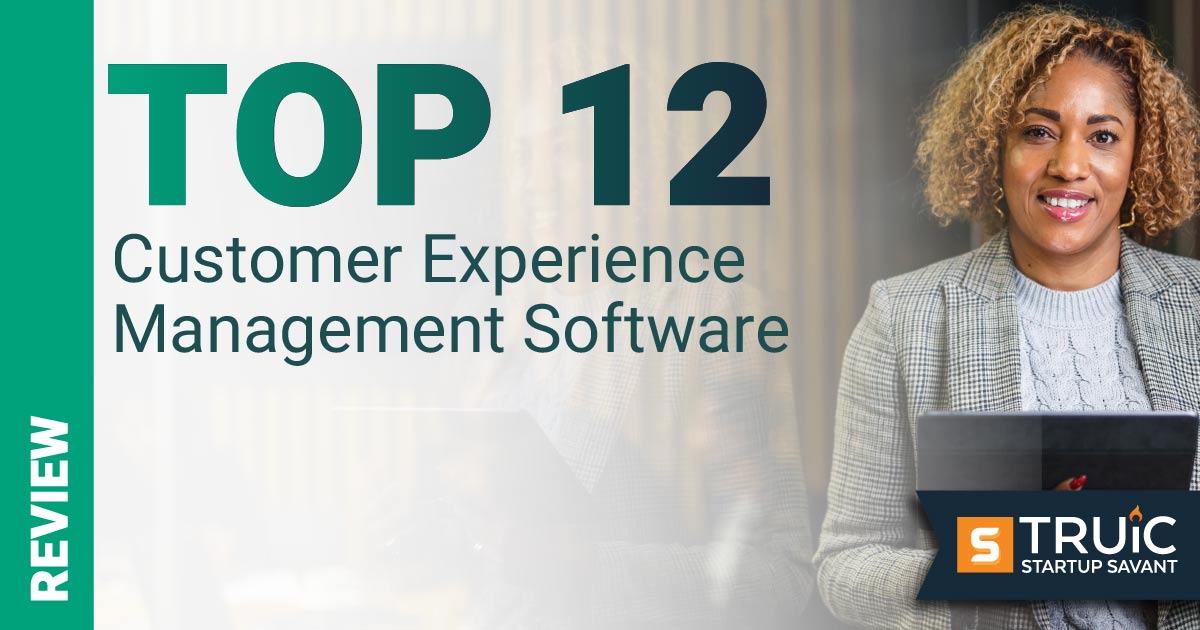10 Best Lead Generation Tools for Startups in 2024

Last Updated: By Michaela Dale
Generating valuable leads is a crucial part of any startup sales strategy. Lead generation tools help simplify the process and ensure that once leads are found, they can be leveraged into converting customers.
There are a number of lead generation tools to choose from, all specializing in different aspects of the sales and marketing process. If you’re not quite sure which software is right for your business, we’ve got you covered with this guide to the best lead generation tools for startups.
Salesforce organizes your leads, contacts, and accounts in one place so you can nurture customer relationships more effectively. Get started now.
Top Lead Generation Software
|
Salesforce
4.8/5 |
Best Overall
|
Visit Site |
|
Zendesk
4.7/5 |
Best User Experience
|
|
|
Pipedrive
4.7/5 |
|
Visit Site |
|
HubSpot
4.6/5 |
|
Visit Site |
|
Mailchimp
4.5/5 |
|
Visit Site |
Lead generation software is used by businesses to attract valuable leads, manage prospects, and nurture relationships. The best lead generation software helps to automate some of the more tedious tasks associated with the sales process as well such as follow-ups and organizing customer data.
Lead generation can come in many forms depending on the type of leads you’re trying to gather. This will also impact the best lead generation software for your startup. For example, if you are looking to build your email list, the ideal software for your business isn’t going to necessarily be the same as a business looking to combine customer and service support data.
To find the right lead generation software for your startup, you need a strong idea of what your business needs to effectively generate leads and turn them into paying customers. We’re here to help with this review of the top lead generation software options available to startups from email marketing to customer relationship management (CRM) software.
10 Best Lead Generation Solutions of 2024:
- Salesforce - Best Lead Generation Software Overall
- Zendesk - Best User Experience
- Pipedrive - Best for End-to-End Automation
- HubSpot - Best a Variety of Sales and Marketing Tools
- Mailchimp - Best for Email and SMS Marketing Combined
- Zoho CRM - Best for Sales Process Management
- ActiveCampaign - Best AI Features
- OptinMonster - Best for Website Conversions
- LinkedIn Sales Navigator - Best for Access to Potential Leads
- Keap - Best for Small Businesses
Recommended: Salesforce
Get a complete view of your customers with Salesforce so you can personalize sales outreach for faster conversions.
1. Salesforce
Salesforce is a powerful customer relationship management (CRM) solution. Their best products for lead generation live inside Salesforce’s Sale Cloud. On the platform, sales teams obtain several valuable lead generation and management tools including lead scoring, which prioritizes leads and helps businesses focus on leads more likely to convert.
In many ways, Salesforce is the industry standard for CRM and lead generation software. The company boasts robust software solutions built to help sales teams get results. While the platform may have a slight learning curve, Salesforce also offers educational resources and training alongside their paid plans to help teams fully leverage the Salesforce platform.
Pros
- Integrations with over 1,000 third-party software solutions
- Trusted name in lead management with robust tools available
- Streamlines the sales process from end-to-end
- Scalable platform grows with your business
Cons
- Valuable features such as revenue intelligence only available as add-on
- May involve a steep learning curve
Notable Features
- Einstein artificial intelligence (AI) built-in
- Automation features throughout the platform
- Extensive features for finding and progressing leads
- Comprehensive, detailed customer insights
Pricing
For Salesforce’s Sales Cloud products there are five plans available: Starter Suite ($25/user/month), Professional ($80/user/month billed annually), Enterprise ($165/user/month billed annually), Unlimited ($330/user/month), and Unlimited+ ($500/user/month).
2. Zendesk Sell
Zendesk Sell is a CRM platform that connects teams for optimal collaboration and data-driven decision making. One of the key benefits of the platform, however, is how flexible it is. Zendesk Sell is a customizable platform, allowing users to create personalized experiences and leverage large amounts of customer data in order to achieve higher results.
For businesses looking to streamline their sales processes, Zendesk Sell is a valuable asset in automating the management of customer data to save sales and marketing teams time.
Zendesk Sell is only one of the business software products offered by the company. For a comprehensive customer experience, users can combine Zendesk Sell and Support to generate a complete customer view and enhance insights.
Pros
- Zendesk Marketplace allows users to customize with apps and integrations
- User-friendly platform with low learning curve
- Easily combines with other valuable Zendesk products
- Several automation features that save teams time
Cons
- Limited number of sales pipelines except for Enterprise package
- Some automation features only available in top-tier packages
Notable Features
- Email automation and tracking
- Sales engagement tools for enrichment, sequencing, and more
- Pipeline reporting and analytics
- Pre-built sales dashboards included in all packages
Pricing
There are four plans available for Zendesk Sell. Here’s the pricing for each if billed annually: Sell Team ($19/agent/month), Sell Growth ($55/agent/month), Sell Professional ($115/agent/month), and Zendesk Sell Enterprise (custom pricing).
3. Pipedrive
Pipedrive is a CRM software and pipeline management solution built to automate the entire sales process. Whether you’re a novice CRM-user or an experienced user, Pipedrive has features built in to allow users to customize their dashboard, creating the optimal workflow for their needs.
The platform boasts a high level of automations from follow-ups to hand-offs to email and phone tracking to streamline the entire sales process and allow sales times to increase leads without skipping a beat.
Customer data is only valuable if used to make more sales, generate new leads, and nurture partnerships. The Pipedrive platform offers robust reporting features including insights on conversion, lead performance, revenue forecasting, and team performance.
Pros
- Integrates with over 400 apps and software
- Free trial available for all plans
- Automatically organizes and tracks calls and emails
- Personalized tips to help sales teams win deals
Cons
- Some helpful features only available as add-ons
- Higher cost for features included
Notable Features
- Task automation including lead-nurturing
- Email tracking and templates
- Customizable reports
- Automated follow-ups
Pricing
Pipedrive offers five different paid plans, billed annually: Essential ($14.90/user/month), Advanced ($27.90/user/month), Professional ($49.90/user/month), Power ($64.90/user/month), and Enterprise ($99/user/month).
4. HubSpot Sales Hub
HubSpot is a leader in the CRM industry with an impressive suite of features included to empower sales teams to organize and leverage customer data, automate processes, and generate new leads with ease.
Trusted by Eventbrite, DoorDash, and Amika, HubSpot Sales Hub is a popular tool for large scale sales teams. The platform’s lead management and prospecting capabilities allow teams to easily manage new and existing leads, improve prospecting to create better buyer experiences, and personal summaries and progress reports to keep pipelines moving.
Pros
- Quote software available to generate quick, branded sales quotes
- Free CRM available
- Easy-to-use platform with 24/7 customer support
- Over 1,400 tools available in the HubSpot App Marketplace
Cons
- Higher cost than some competitors
- Limited number of users
Notable Features
- Forecasting, analytics, and reporting capabilities
- HubSpot AI for CTA and email creation
- Email tracking and templates
- Accept payments and include payment links through the platform
Pricing
HubSpot Sales Hub offers a free plan and five paid plans. For individuals and small teams, HubSpot offers the following plans billed annually: Starter ($18/month for two users), Professional ($450/month for five users), and CRM Suite Starter (a combination of all HubSpot products starting at $30/month).
For businesses and enterprises, HubSpot offers two paid plans billed annually: Professional ($450/month for up to five users) and Enterprise ($1,500/month for up to 10 users).
5. Mailchimp
Mailchimp is an all-in-one marketing solution geared primarily toward email marketing. However, the platform also boasts solutions for SMS and social media marketing as well as audience management features. With Mailchimp, businesses can build targeted campaigns, assess customer insights, and generate valuable leads across several marketing strategies.
On the platform, users are able not only review behavioral data to enhance targeting, they can utilize the free CRM to manage contacts with ease. With email and text marketing becoming such valuable tools for sales and marketing teams alike, Mailchimp is a powerful tool to build better campaigns and leverage the resulting data to increase conversion rates.
Pros
- Free version available
- Integrates with over 300 software and apps
- Combines multiple marketing campaign types all on one platform
- Advanced segmentation tools available to better target customers
Cons
- Limited customer support for free plan members
- Limited users available on most plans
Notable Features
- Generative AI to help optimize campaigns
- Pre-built email templates
- Automatically applies branding, fonts, logo, and color palettes
- SMS and MMS marketing add-ons available
Pricing
MailChimp offers four plans billed monthly: Free, Essentials ($13/month for three users), Standard ($20/month for five users), and Premium ($350/month for unlimited users). However, these prices increase based on the number of contacts.
6. Zoho CRM
Zoho CRM is a tool for building superior customer relationships, tracking sales progress, and managing valuable leads. This is a great software for managing contacts and generating new leads. In fact, the platform offers notifications for brand mentions and interactions across email, your website, and social media.
In addition, Zoho CRM’s automation features span from lead management to making deals to nurturing contact relations. Users can easily customize end-to-end processes to remove tedious tasks such as lead assignment and sales data validation — creating the optimal experience for each team.
Pros
- Process management tools help to keep teams aligned
- Fast implementation and user-friendly
- Workflow automation included in all plans
- Powerful analytics and real-time reporting
Cons
- AI features only available on most expensive plans
- Segmentation features are limited to most expensive plans
Notable Features
- Automations for routine tasks across sales, marketing, and support
- Customer journey orchestration
- Drag-and-drop dashboard editor
- Notifications for interactions and brand mentions
Pricing
Zoho CRM is available in four paid tiers, billed annually: Standard ($14/user/month), Professional ($23/user/month), Enterprise ($40/user/month), and Ultimate ($52/user/month).
7. ActiveCampaign
ActiveCampaign is known primarily for their email and marketing automation software. However, the company also offers a CRM and sales engagement platform that can be purchased on its own or alongside its email marketing counterpart.
The ActiveCampaign sales platform allows users to create sales engagement, SMS marketing, and more automations, then conduct an overview of their impact using their automations map. The platform also boasts multiple AI-powered features to gauge positive or negative feedback from customers to optimize segmentation and probability of winning a deal to better prioritize leads.
Pros
- Lower cost than many competitors
- Multiple AI features included in most plans
- Can be bundled with ActiveCampaign email software
- Automated updates keep deals at the forefront of sales teams’ minds
Cons
- No free plan available
- Limited capabilities on lower-cost plans
Notable Features
- Lead scoring
- AI-powered sentiment analysis
- AI-powered win probability capabilities
- Capture and sync leads from Facebook Lead Ads
Pricing
ActiveCampaign’s sales platform is available in three paid plans, billed annually: Plus ($19/month), Professional ($49/month), and Enterprise ($99/month).
8. OptinMonster
OptinMonster is a lead generation software that works to turn website visitors into email subscribers, paying customers, and more. The user-friendly platform allows businesses to conduct targeted, segmented offers throughout their website, deployed at the perfect time.
The platform works in a couple of steps: create a visually-appealing offer, target customers with built-in behavior automation, then test and adapt your strategy using real-time reporting. Businesses can use this software to build their customer base with strategies that are rooted in consumers’ behavioral data to increase the likelihood of success. Plus, new users receive one free campaign built by conversion experts.
Pros
- A/B testing is easy and effective
- Campaigns are able to be personalized through Exit Intent® Technology
- Easy-to-use platform with no-code templates
- Top-tier support and community to help with campaign issues
Cons
- Niche product that isn’t relevant to all sales needs
- Fewer conversions than some competitors
Notable Features
- Pre-made lead capture form templates
- Testing and real-time reporting features
- Onsite and exit intent targeting capabilities
- Segmentation engine
Pricing
OptinMonster offers four paid plans, billed annually: Basic ($9/month), Plus ($19/month), Pro ($29/month), Growth ($49/month).
9. LinkedIn Sales Navigator
LinkedIn is an important platform for sales professionals to research and connect with prospects. The social media platform’s Sales Navigator is a tool to make the most out of LinkedIn and all of the leads it has to offer by offering features for lead prioritization, warm introductions, and signals to time engagement perfectly.
LinkedIn Sales Navigator is a great tool for access to new leads which can be half the battle for sales teams looking to convert customers on a great product. However, the key to successfully using LinkedIn Sales Navigator is ensuring your sales team is up to the challenge of converting customers once they have access to their information.
Pros
- Helps salespeople gain access to potential customers
- Gain valuable customer insights
- Easily target companies that already share commonalities for better targeting
- Integrations with top CRM software and sales tools
Cons
- Lacks functionality of other lead generation tools
- No pricing information disclosed on the website
Notable Features
- Buyer-persona segmentation and advanced search
- Relationship and network mapping
- Outreach prioritization capabilities
- Data on saved searches, profile views, and followers
Pricing
LinkedIn Sales Navigator doesn’t have pricing information available.
10. Keap
Keap is a CRM software built for small businesses. The platform is super easy to use, no matter what your experience level is making it ideal for novice CRM users. Plus, the platform combines sales and marketing automations including email and SMS marketing for an all-in-one platform.
Each paid plan offered by Keap is loaded with features from automated text messaging to Google review requests to customizable check out forms that automatically sync with the CRM. Overall, Keap is a powerful tool for businesses looking for a platform that casts a wide net across marketing, sales, and customer relations.
Pros
- Sales and marketing features included in all plans
- User-friendly platform is easy to learn
- Excellent customer service available 24/7 for all plans
- Leads are automatically scored
Cons
- More expensive than many competitors
- Additional users cost extra
Notable Features
- Marketing, sales, and workflow automation
- Text and email marketing capabilities
- Affiliate management (available in top tier package)
- Automated lead follow-ups
Pricing
Keap offers three paid plans, billed annually: Pro ($159/month for two users), Max ($229/month for three users), and Ultimate ($279/month for three users). Additional users are $29 each per month.
Honorable Mentions
With so many great lead generation tools available to startups, we had to include these strong options as well that didn’t quite make the cut for our top list.
Sumo
Sumo is an email capture software built to generate leads through effective design. The platform is free to get started and offers a money-back guarantee. To use Sumo, businesses can leverage one of their design templates and advanced targeting features to integrate with their website and capitalize on existing traffic.
Intercom
Intercom is an AI-powered customer service platform offering an AI chat bot, help desk, and support options to keep customers happy. The platform is used by Microsoft, Spendesk, and Udemy to deliver streamlined customer service experiences that build brand loyalty and save employees time.
Apollo
Apollo is a lead generation platform with a living database of over 275 million contacts. Emails, calls, or LinkedIn connections are easy on the platform using their valuable engagement tools and Apollo AI, built to encourage engagement at the exact right moment. Plus, the platform offers a Chrome extension to blend seamlessly with sales team’s workflows.
Unbounce
Unbounce helps businesses create high-performing landing pages with AI. Rather than letting website traffic go to waste, Unbounce works to create and optimize websites to turn visitors into paying customers and subscribers.
How to Choose a Lead Generation Tool
Generating valuable leads is a key element to your startup’s success. Therefore, choosing the right tool to help you capture valuable leads and turn them into loyal customers is crucial. Before you choose a lead generation tool, however, you need to consider the price, features, usability, and the type of service.
Price
The best software for a startup fits within its budget. With so many software solutions on the market, be sure to assess competitors side-by-side to ensure you’re not paying a premium for a service that isn’t right for you.
Features
If the software you’re using doesn’t have the right features, it likely won’t achieve the results you’re hoping for. Research the features you need, and don’t need, to generate leads and manage potential customers before settling on one software.
Usability
Many business software solutions come with a learning curve. If you or your team are new to the type of software you’re considering, identify whether there is a steep learning curve. If there is, make sure there is top tier customer support and/or onboarding to help your startup adopt the software with ease.
Type of Service
If you’re looking for a robust email tool, make sure the platform you’re signing up for is the right solution for your sales needs. There are several niche lead generation software solutions available; do your research and determine that the one you’ve selected has the right features and capabilities to help you reach your goals.
FAQs
Which platform is best for lead generation?
We recommend Salesforce for startups looking for a robust, feature-rich sales tool to generate leads, manage contacts, and nurture customer relationships.
What is an effective tool to find new leads?
A lead generation software can help you find new leads, organize the data, and even automate follow-ups. We recommend Salesforce to help generate and manage leads for startups.
What software is used for lead generation?
There are many software solutions available for lead generation. Salesforce is the industry standard for sales tools and our recommendation for software lead generation.
How do startups generate leads?
As with any business, startups need to generate leads to sell their product or service. However, the way with which a startup will generate leads will vary depending on the type of business and their target audience.






